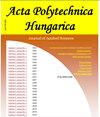The Implications of Electric Scooters as a New Technology Artifact in Urban Transportation
IF 1.8
4区 工程技术
Q2 ENGINEERING, MULTIDISCIPLINARY
引用次数: 0
Abstract
: E-scooters are becoming an increasingly important component of urban transportation networks, providing a sustainable alternative for first and last-mile travel. However, if they are not managed and regulated carefully, they can become a risk to users and cities in general. In this paper, we studied the emergence of this innovative, platform-based, and shareable e-scooter, as a possible ‘greener’ transport alternative, from a sustainability and environmental awareness perspective. The most critical question is legislation. Urban planners need to implement laws limiting maximum speeds, requiring the use of e-scooter infrastructure, and providing dedicated parking, as well as limiting the number of licensed operators. In our exploratory research, we conducted three focus group discussions to explore the views of non-users and then built the nomological network from the key phenomenons they identified. The participants are confused about micro-mobility solutions, according to the findings, due to a lack of clarity on regulatory problems and poor infrastructure. As a result, we propose that policies should be co-developed in cooperation with various stakeholders to enable antagonistic conversation about alternative policy actions by evaluating their effectiveness in terms of behavioral change as well as their implementability.电动滑板车作为一种新技术在城市交通中的应用
本文章由计算机程序翻译,如有差异,请以英文原文为准。
求助全文
约1分钟内获得全文
求助全文
来源期刊

Acta Polytechnica Hungarica
ENGINEERING, MULTIDISCIPLINARY-
CiteScore
5.20
自引率
17.60%
发文量
65
审稿时长
6-12 weeks
 求助内容:
求助内容: 应助结果提醒方式:
应助结果提醒方式:


